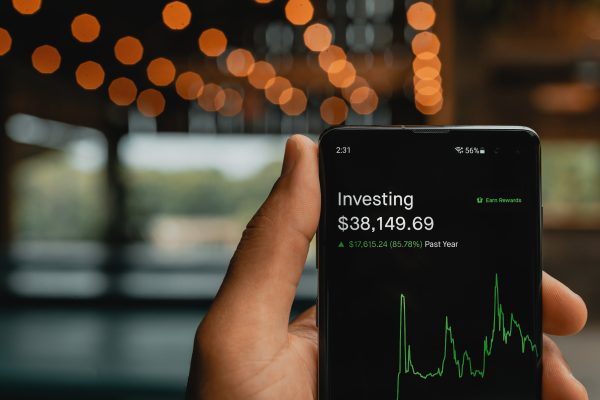
What IFG will do to help bring about a truly Islamic economy
05 January 2024 8 min read

5 min read
Published:
Updated:

Ibrahim Khan
Co-founder
You walk into your local Muslim businessman’s shop – let’s say he sells kitchens – and you get into a discussion with him about how he started off and how he sustains his business.
“Through a credit line from the bank man,” he tells you. “I needed them at the start so much, and then after too when I was expanding. Without them this shop that you see, these chrome W.C.s and top-of-the-range jacuzzis that extend as far as the eye can see, they wouldn’t be here.”
“Ah but you do know riba is haram don’t you?”
“Man, it’s all just the same really when you get into the nitty gritty of it.”
“How so?”
Argument One: The financial outcome is the same
“Well let’s say I lend you £10 and you buy 10 pencils with it and then sell them all at £2. You will make back £20 in total. Then you pay me back £12 and make £8 profit.
“Yes…”
“Now let’s say I invest £10 in your business in return for a 60% stake in the business. Again you use the £10 to buy 10 pencils and sell them at £2. Then we split the profits 60-40. I get £12 again and you get £8 – exactly the same as the lending case. What’s the difference?”
“The difference is that the risk profiles of both ventures is completely different for you. When you are lending to me, it doesn’t matter if I profit or not, you are still owed the £12. You don’t really care what I do with your money as your profit is secured and you can seize my assets if I don’t pay you back. However in the lending case you do a much fuller research into what I am proposing as you know that your returns are linked up with the actual viability of my project. You will be sharing in the profit and loss of the venture as opposed to just profiting from the money alone.
On the macroeconomic picture this has a number of effects:
Argument Two: The opportunity cost of money argument
“Okay fine, let’s say I accept that debt and equity are fundamentally different, but isn’t it true that there is a time value to money and someone who has given you £10 should be compensated for losing the ability to make use of that £10 for that 1 month he loaned to you?”
“No. Why so?”
“Well that person who gave you the £10 lost use of the £10. He could have either spent that £10 and bought himself a takeaway dinner or he could have invested that £10 and made some profit from that. But by lending it out to you he forewent that profit and so consequently he should be compensated for that no?”
“No. Let’s take each case in turn.
Firstly, if he was to buy a takeaway he would not be able to lend to me and make an extra £2. But if he did lend to me and make an extra £2 he would be able to buy more takeaway. Essentially he has hired out his money and made a rent from it. However money is best understood as a medium of exchange, a unit of account, a store of value. It is not in of itself productive. You can’t eat money. You can’t wear money, You can’t really use it for much. In Islamic law something can only be hired out and profit made off it if that underlying thing is actually useful. Money is not.
Secondly, if he was to invest in something, he would have the potential of making a £2 profit. However this profit is not certain and he could also make a loss. So it does not seem fair to me that someone can decide to loan out the £10 for a guaranteed profit of £2 on the basis that he could have invested the £10 and made a potential profit and so should be compensated for that. In Islamic economics the thing that gives value to something is labour and entrepreneurship, and dealing in the real tangible economy in things like products and services. Financial jiggery pokery is not seen as productive and something to be rewarded. If everyone in the UK became a financier nothing would actually get done.
“But what about inflation? Surely as money loses value over time, it is unfair that you can’t charge interest just to make sure you don’t lose out. Your £10 will actually be worth less than it was before you lent it.”
“Good point. This is something Islamic scholars are currently disagreed upon though the majority say it is still interest. But a couple of points. Firstly interest rates are above and beyond inflation rates, so usually interest is something more than just trying to protect the value of your money. Secondly, inflation is caused primarily by a monetary system which is based on interest (see www.positivemoney.org) so some people have argued that it seems counter-intuitive to allow interest on the basis of an effect created by interest in the first place!
However I think some nuance needs to be applied here, and if taking a loan out where an inflation rate is applied becomes a necessity, then that is most likely acceptable. This is as we are highly unlikely to change the financial system in the short term and so inflation will continue to exist and this is an effective way of dealing with it. No one is effectively profiting from this “extra”. This is just a sad consequence of our dodgy financial system.
The bottom line about riba is this: economic activity should be focused on real and productive pursuits and money should not be seen as a product itself to be rented out. A good book to get started on this subject is this one.

05 January 2024 8 min read

11 September 2023 8 min read

21 July 2023 6 min read